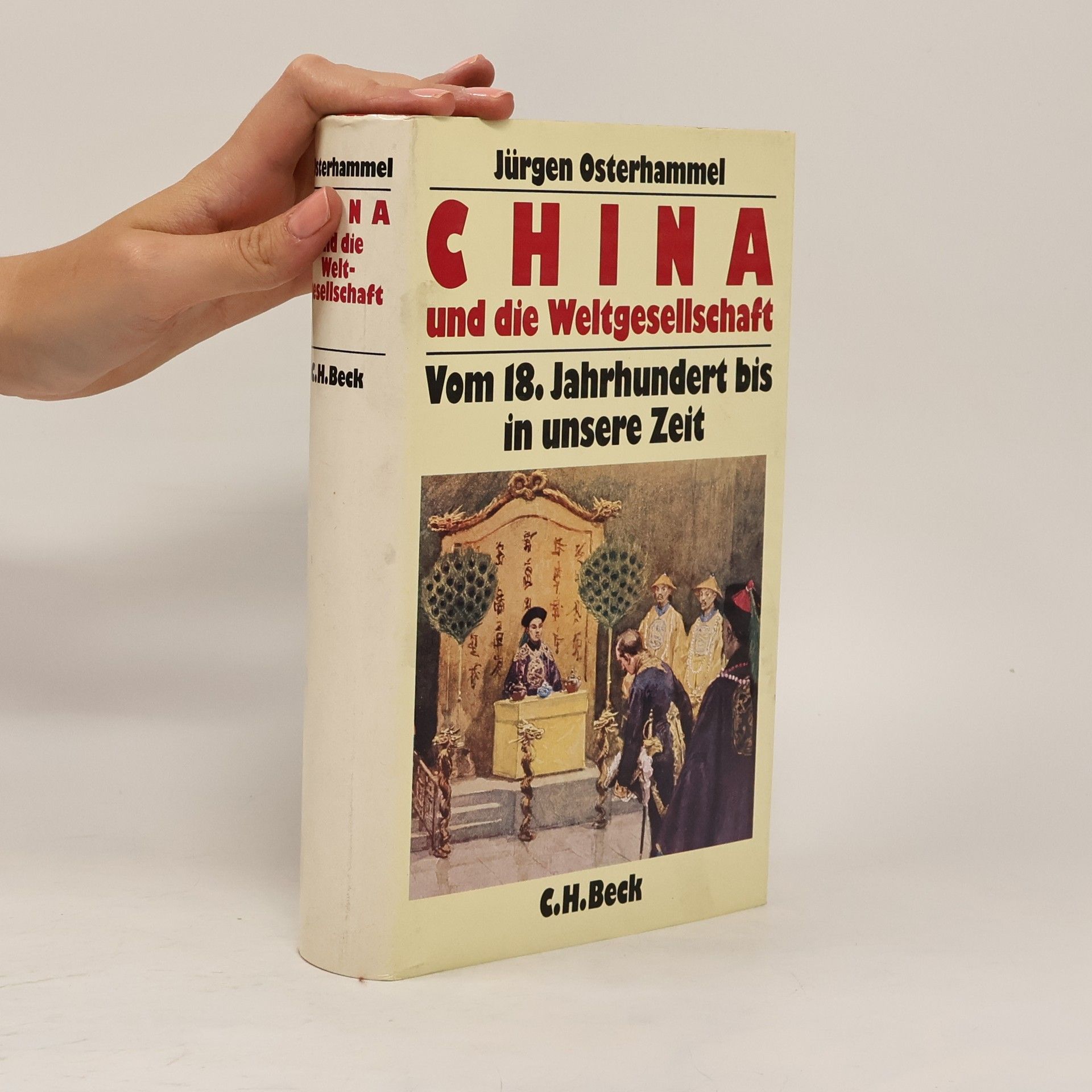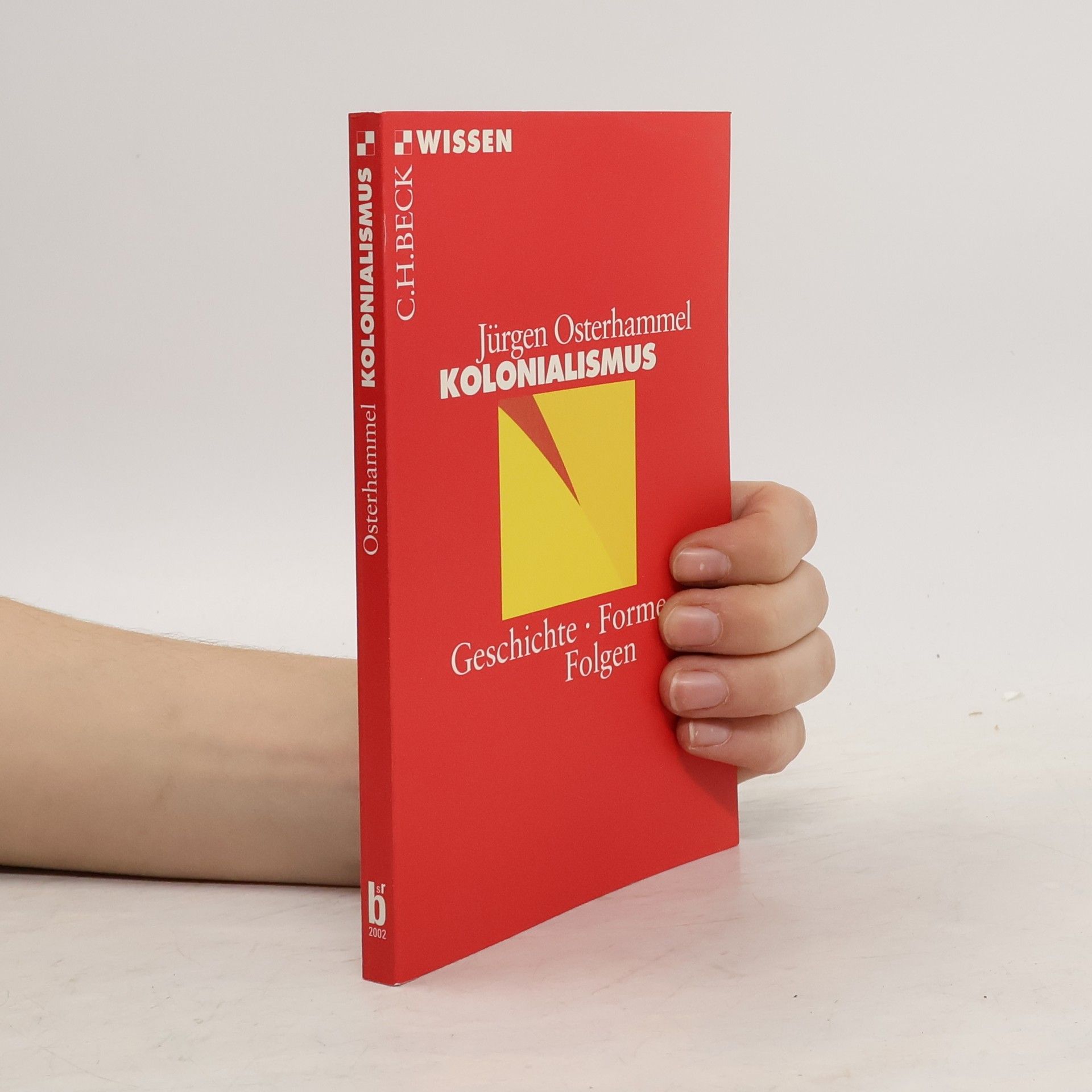Una historia global de la época que vio nacer el mundo en que vivimos: un largo siglo xix que comienza en 1760 y concluye hacia 1920. Todo lo que importa conocer, en una visión que abarca el mundo entero, está en estas páginas, que se despliegan en una doble secuencia de < > (con el análisis de ocho esferas de la realidad, como niveles de vida, ciudades, fronteras, imperios y naciones o el estado) y de < >, que abarcan desde la energía y la industria hasta la religión. Esto le permite a Osterhammel tratar las grandes cuestiones con una perspectiva de historia total, hablándonos de las migraciones, el retroceso del nomadismo, el colonialismo, la diplomacia y la guerra, las revoluciones, el oro y las finanzas, la alfabetización y la escuela ..
Jürgen Osterhammel Libros
Jürgen Osterhammel es profesor emérito de historia moderna y contemporánea en la Universidad de Constanza. Su obra profundiza en la historia global, especialmente desde perspectivas a largo plazo. Se centra en la historia mundial, la modernidad global y los estudios asiáticos. Su enfoque se caracteriza por una amplia visión y un énfasis en el análisis comparativo.
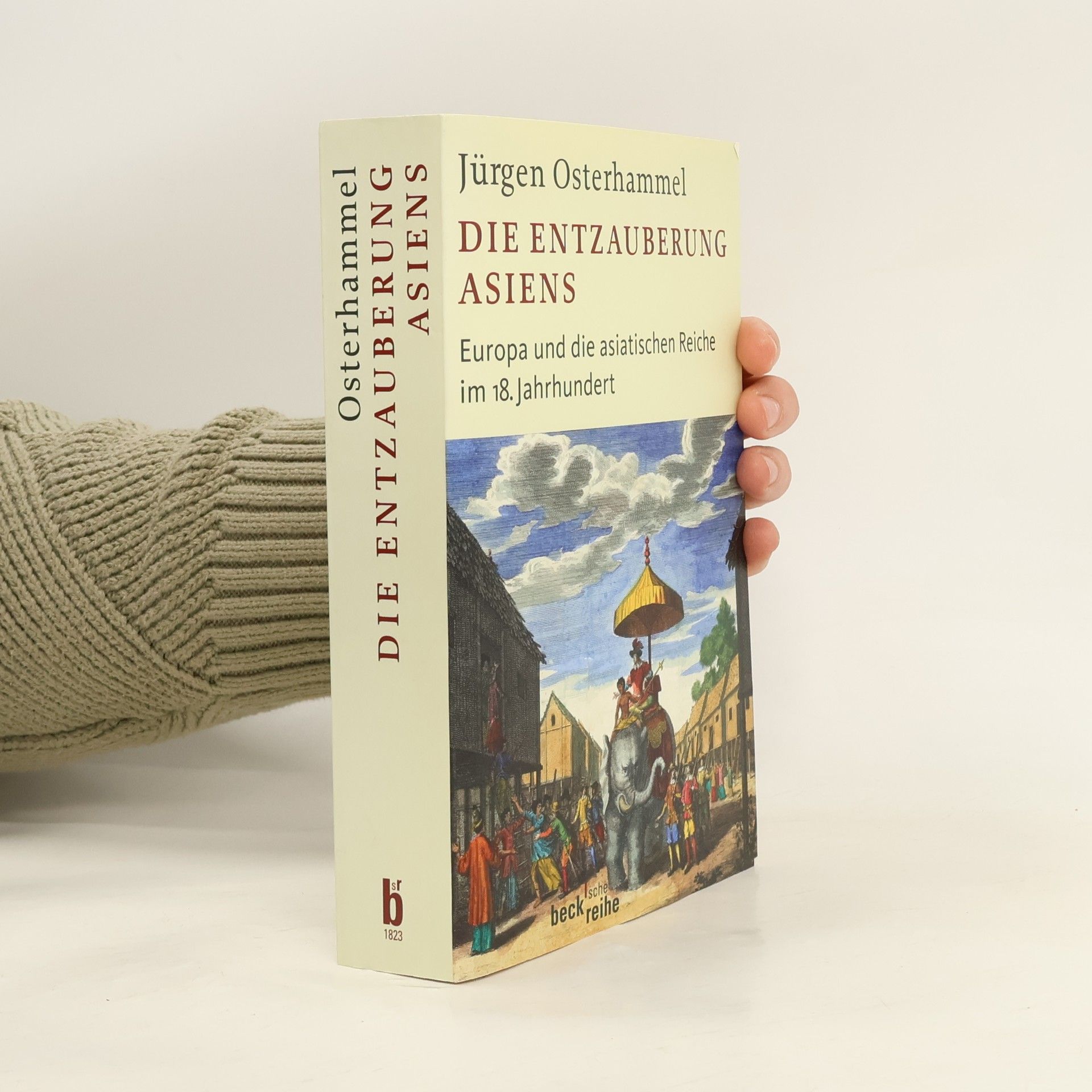
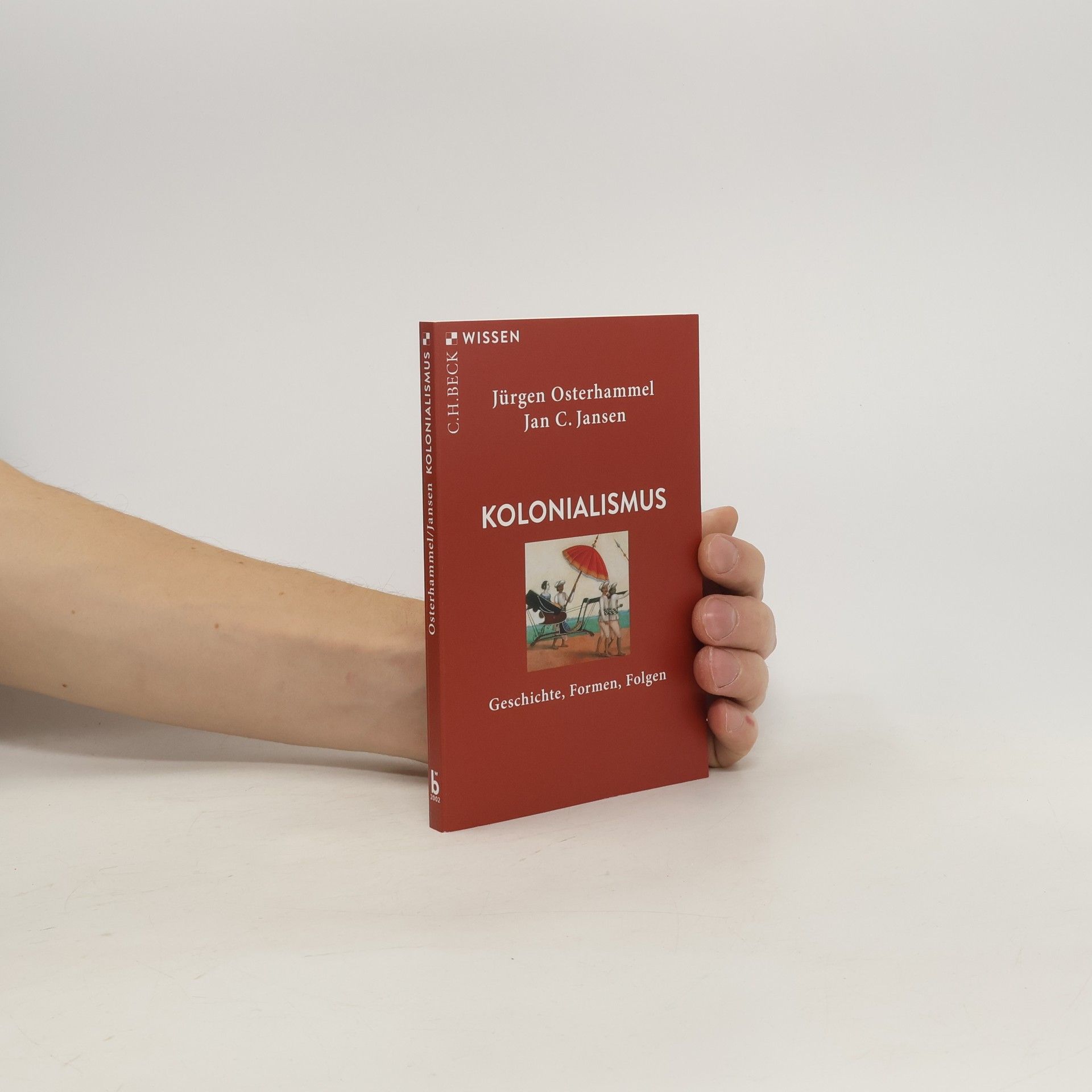

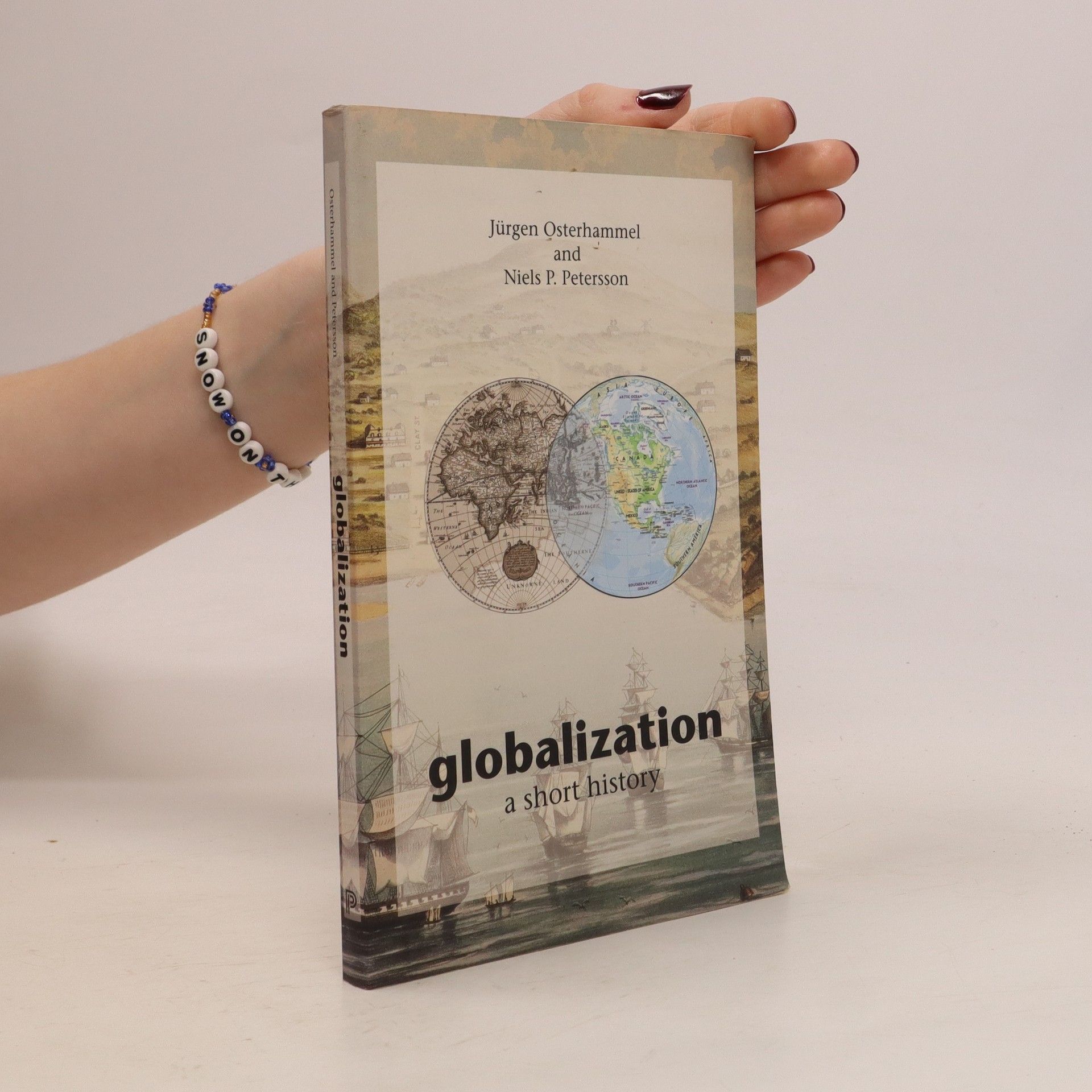


The book explores the significant transformations that occurred globally after 1750, highlighting the interconnectedness of states and regions through commerce and conflict. It delves into the historical developments that shaped the modern world, focusing on events and changes outside the Western perspective. As part of a comprehensive six-volume series, it provides a detailed analysis of this pivotal era in world history, emphasizing the emergence of new dynamics that influenced global interactions.
Globalization : a short history
- 200 páginas
- 7 horas de lectura
In this work, Jurgen Osterhammel and Niels Petersson make the case that globalization is not so new, after all. Arguing that the world did not turn "global" overnight, the book traces the emergence of globalization over the past seven or eight centuries. In fact, the authors write, the phenomenon can be traced back to early modern large-scale trading, for example, the silk trade between China and the Mediterranean region, the shipping routes between the Arabian Peninsula and India, and the more frequently travelled caravan routes of the Near East and North Africa, all conduits for people, goods, coins, artwork, and ideas.
30 Jahre WISSEN "Klug systematisierend ... ein fundierter Zugang zur Materie." Andreas Eckert, Die ZEIT Kaum ein Vorgang veränderte die Welt im 20. Jahrhundert so sehr wie das Ende kolonialer Herrschaft in Asien und Afrika. In systematischen und chronologischen Kapiteln beschreibt das Buch diesen Prozess mit seinen weiten Ausläufern im gesamten Jahrhundert und bietet lokale, imperiale und globale Erklärungen an. Es fragt nach den Auswirkungen der Dekolonisation auf Weltwirtschaft, internationales System und Ideengeschichte sowie nach den vielfältigen langfristigen Folgen für die ehemaligen Kolonien und Metropolen.
Kolonialismus
Geschichte, Formen, Folgen
"EINE ... SCHWER ZU ÜBERTREFFENDE DARSTELLUNG, DIE AUCH INTERNATIONAL IHRESGLEICHEN SUCHT." - ANDREAS ECKERT, DIE ZEIT Koloniale Herrschaft war ein herausragendes Merkmal der Weltgeschichte zwischen etwa 1500 und 1975. Die Autoren schildern an Beispielen aus allen Kolonialreichen der Neuzeit Methoden der Eroberung, Herrschaftssicherung und wirtschaftlichen Ausbeutung, Formen des Widerstands, das Entstehen besonderer kolonialer Gesellschaften, Spielarten kultureller Kolonisierung sowie die Grundzüge kolonialistischen Denkens und von Kolonialkultur, deren anhaltende Wirkung wieder stark diskutiert wird.
Asien war eines der großen Themen der Aufklärungsepoche. Im 18. Jahrhundert wurden auch entlegene Teile Asiens bereist und erschlossen. Um 1780 waren die Gebildeten Europas über Asien hervorragend informiert. Asien wurde damals zugleich entzaubert und besser verstanden als in den Jahrhunderten davor. Für eine kurze Zeit wurden Araber, Inder, Perser oder Chinesen zu entfernten Nachbarn, mit denen sich trotz offenkundiger Kommunikationsschwierigkeiten ein Dialog führen ließ. Weltoffenheit und wissenschaftliche Neugier kippten um 1800 in eine neue, heute noch nachwirkende Arroganz um. Zur kolonialen Unterwerfung eines entzauberten Kontinents war es dann nur ein kleiner Schritt. Für die Neuausgabe wurde das Buch um ein Nachwort erweitert, das sich kritisch mit der Diskussion um eurozentrischen "Orientalismus" auseinandersetzt.
Kolonialismus
- 142 páginas
- 5 horas de lectura
Koloniale Herrschaft von Europäern - und in der ersten Hälfte des 20. Jahrhunderts auch von Nordamerikanern und Japanern - über große Teile der Erde war ein herausragendes Merkmal der Weltgeschichte zwischen etwa 1500 und 1960. Angesichts der extrem unterschiedlichen Entwicklung der früheren Kolonialgebiete in Amerika, Asien und Afrika stellt sich heute die Frage nach einer differenzierten Bewertung der Wirkungen des Kolonialismus. Das Buch unterscheidet Formen und Epochen des Kolonialismus. An Beispielen aus allen Imperien der Neuzeit schildert es Methoden der Eroberung, Herrschaftssicherung und wirtschaftlichen Ausbeutung, das Entstehen besonderer kolonialer Gesellschaften, Spielarten kultureller Kolonisierung, die Grundzüge kolonialistischen Denkens sowie die Ursachen der Dekolonisation.
Die Entzauberung Asiens
Europa und die asiatischen Reiche im 18. Jahrhundert
- 574 páginas
- 21 horas de lectura
Asien war eines der großen Themen der Aufklärungsepoche. Im 18. Jahrhundert wurden auch entlegene Teile Asiens bereist und erschlossen. Um 1780 waren die Gebildeten Europas über Asien hervorragend informiert. Asien wurde damals zugleich entzaubert und besser verstanden als in den Jahrhunderten davor. Für eine kurze Zeit wurden Araber, Inder, Perser oder Chinesen zu entfernten Nachbarn, mit denen sich trotz offenkundiger Kommunikationsschwierigkeiten ein Dialog führen ließ. Weltoffenheit und wissenschaftliche Neugier kippten um 1800 in eine neue, heute noch nachwirkende Arroganz um. Zur kolonialen Unterwerfung eines entzauberten Kontinents war es dann nur ein kleiner Schritt. Für die Neuausgabe wurde das Buch um ein Nachwort erweitert, das sich kritisch mit der Diskussion um eurozentrischen „Orientalismus“ auseinandersetzt.
Sklaverei und die Zivilisation des Westens
- 73 páginas
- 3 horas de lectura
